SHARE
News:
Frontlines of Influence: The EU’s Role in the Western Balkans and the Eastern Partnership
On 26 May, the Belgrade Centre for Security Policy (BCSP) and the Faculty of Political Sciences (FPN), University of Belgrade, co-organised the conference “Frontlines of Influence: The EU’s Role in the Western Balkans and the Eastern Partnership”. The event was held at the Europe House as part of the GeoPowerEU and REUNIR projects.
The conference brought together leading researchers, policymakers and civil society representatives to present key findings on how the European Union’s internal dynamics, enlargement policy, and external influences are shaping developments in the Western Balkans and the Eastern Partnership region.
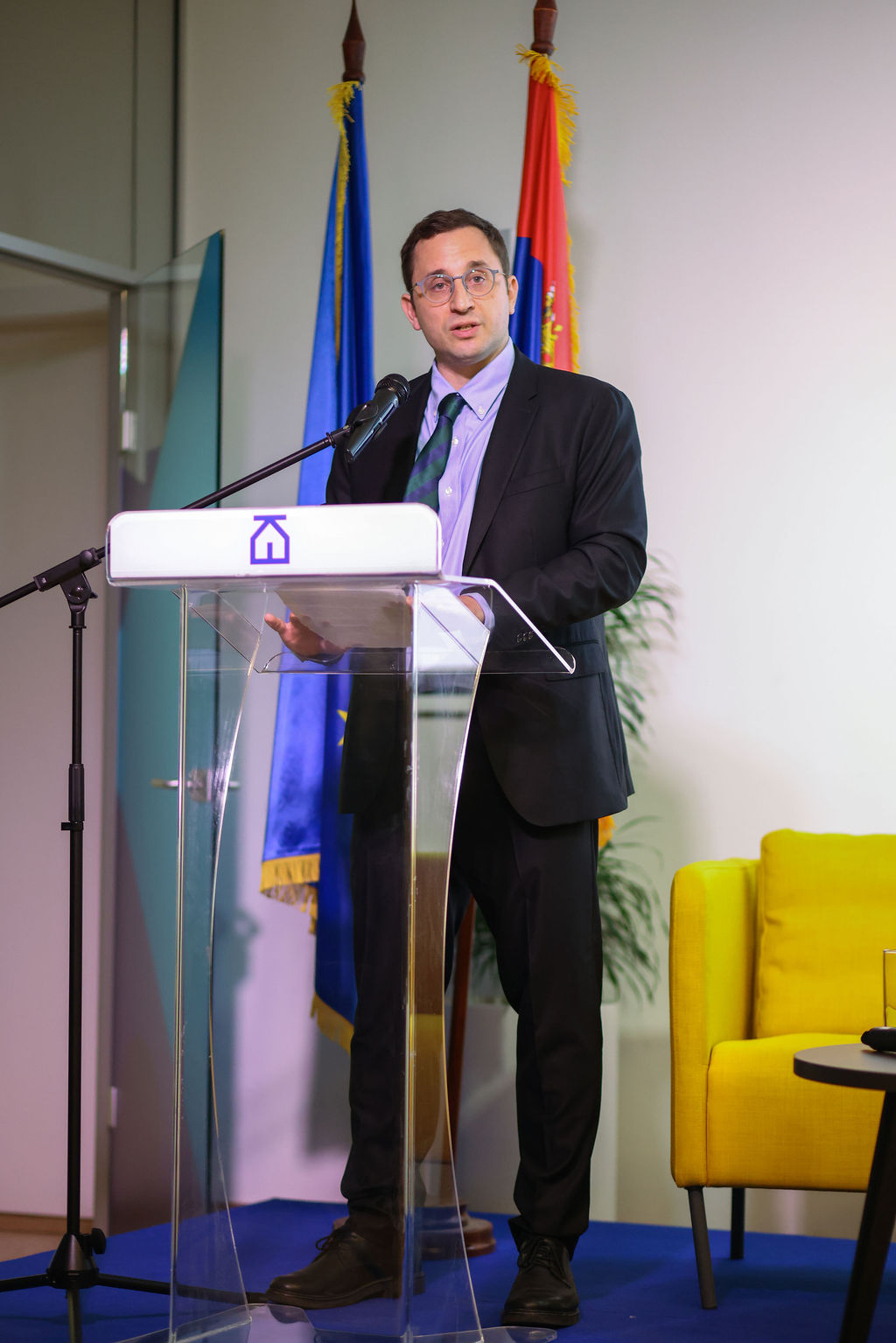
Opening the conference, Prof. Filip Ejdus (FPN) underlined Serbia’s pivotal moment: “Serbia stands at a crossroads — between deepening authoritarianism and the path to EU integration.” He pointed to growing pressure on the academic community, including surveillance, salary cuts, and shrinking freedoms, framing these as broader threats to democracy and the rule of law.
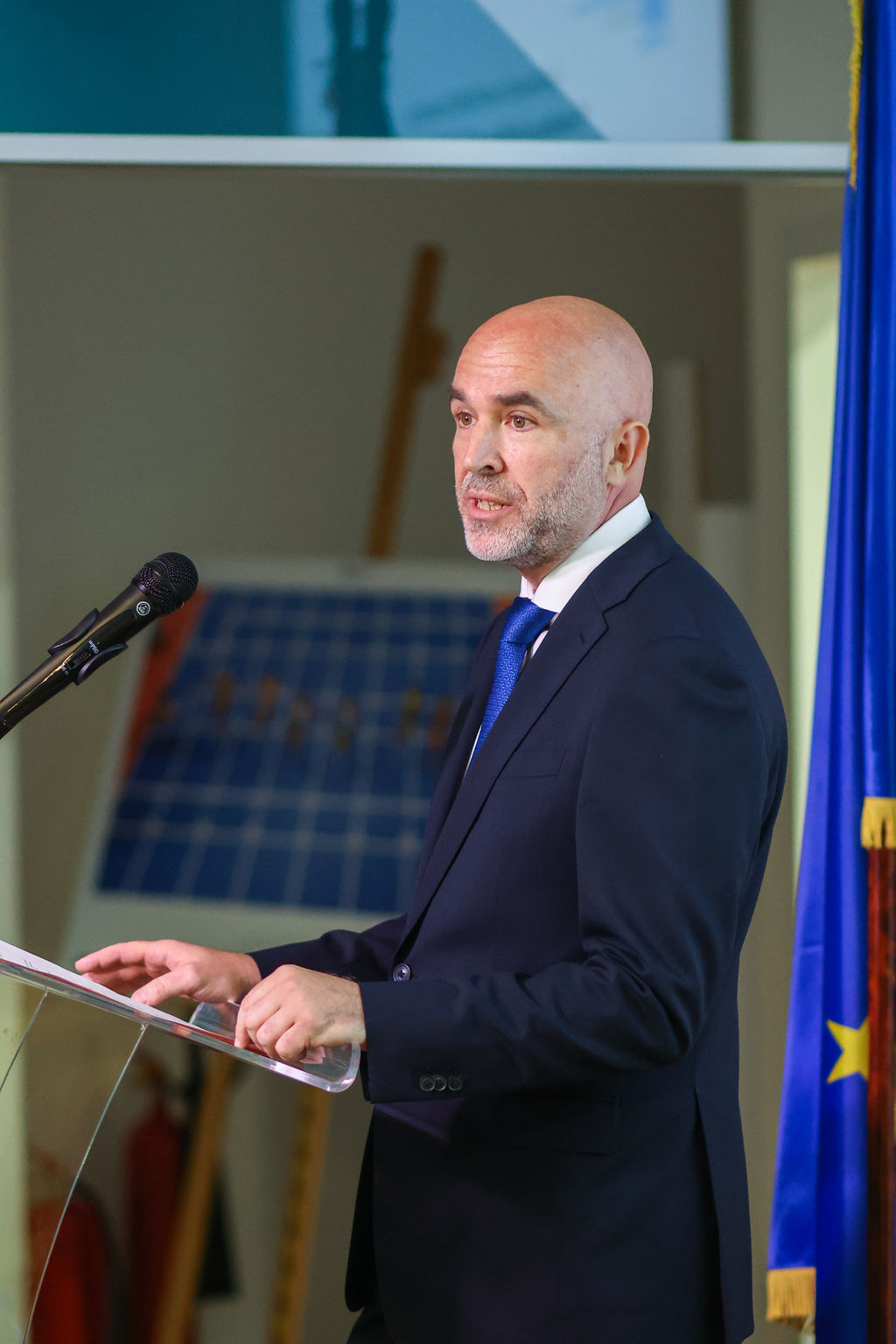
Srđan Cvijić, President of the BCSP International Advisory Committee, stressed that “democracy can’t be outsourced.” He noted that civil society—particularly youth and students—has taken on the responsibilities that institutions have abandoned under an increasingly authoritarian regime. “The torch of democracy, extinguished by repression and propaganda, is still being carried forward by citizens.”
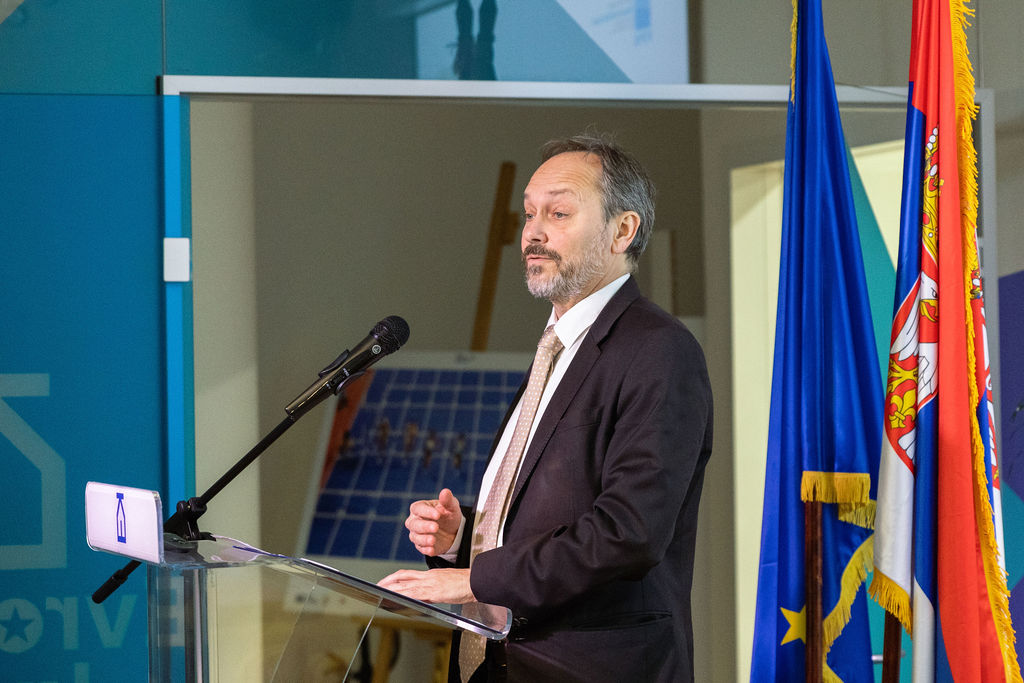
In his keynote address, H.E. Emanuele Giaufret, Ambassador and Head of the EU Delegation to Serbia, emphasised the urgency of enlargement in light of global instability: “We know that we need to move fast, and we need to strengthen our common European interest.” He reaffirmed that while the pace of enlargement may accelerate, the merit-based nature of the process remains essential.
PANEL I: Europe’s Challenge – Advancing Enlargement Amid Democratic Backsliding and Geopolitical Pressures
The first panel, moderated by Srđan Cvijić, examined how the EU is addressing democratic regression in candidate countries amidst rising geopolitical tensions.
Speakers included:
- Steven Blockmans (Centre for European Policy Studies),
- Jelena Pejić Nikić (BCSP),
- Shota Kakabadze (Georgian Institute of Politics),
- Gresa Hasa (University of Graz).
Focusing on Serbia, Albania, and Georgia, the panel explored contradictions within the enlargement process, showcasing both persistent challenges and emerging opportunities.
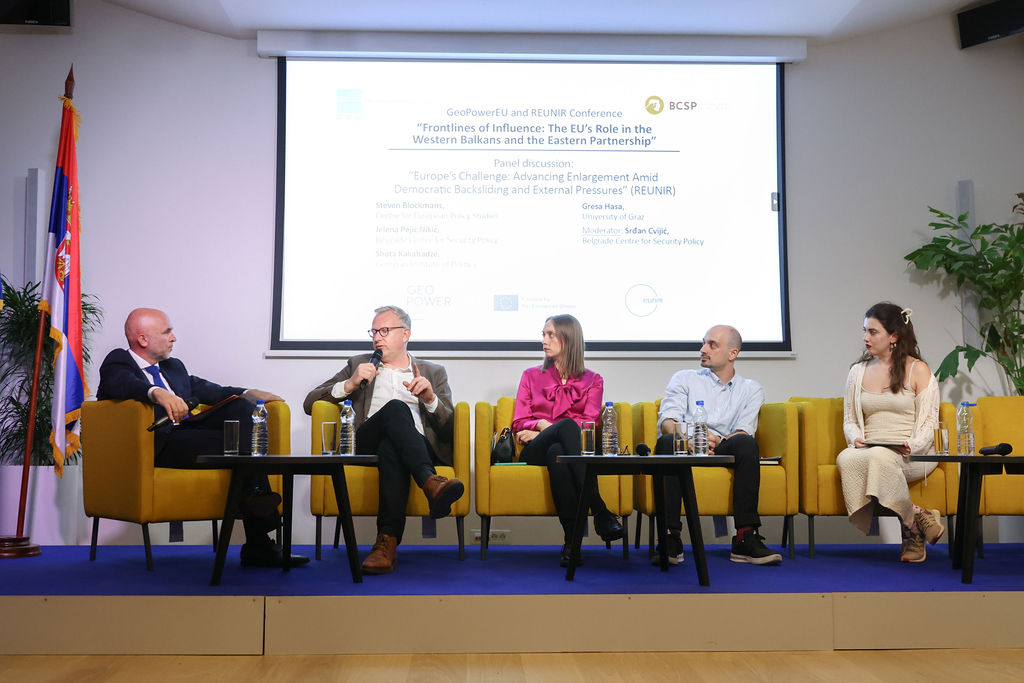
PANEL II: The EU in the Era of Geopolitics – Power, Strategy and Influence
The second panel, moderated by Filip Ejdus, addressed the broader strategic environment influencing EU engagement and enlargement.
Panelists included:
- Nikolaos Tzifakis and Panagiota Manoli (University of the Peloponnese),
- Alexandra Bykova (Vienna Institute for International Economic Studies),
- Björn Fägersten (Swedish Institute of International Affairs),
- Strahinja Subotić (European Policy Centre & InvigoratEU project).
Discussions centred on how the EU can maintain credibility and influence in its neighbourhood through clearer strategic vision, more robust democratic conditionality, and consistent investment in regional stability and governance.
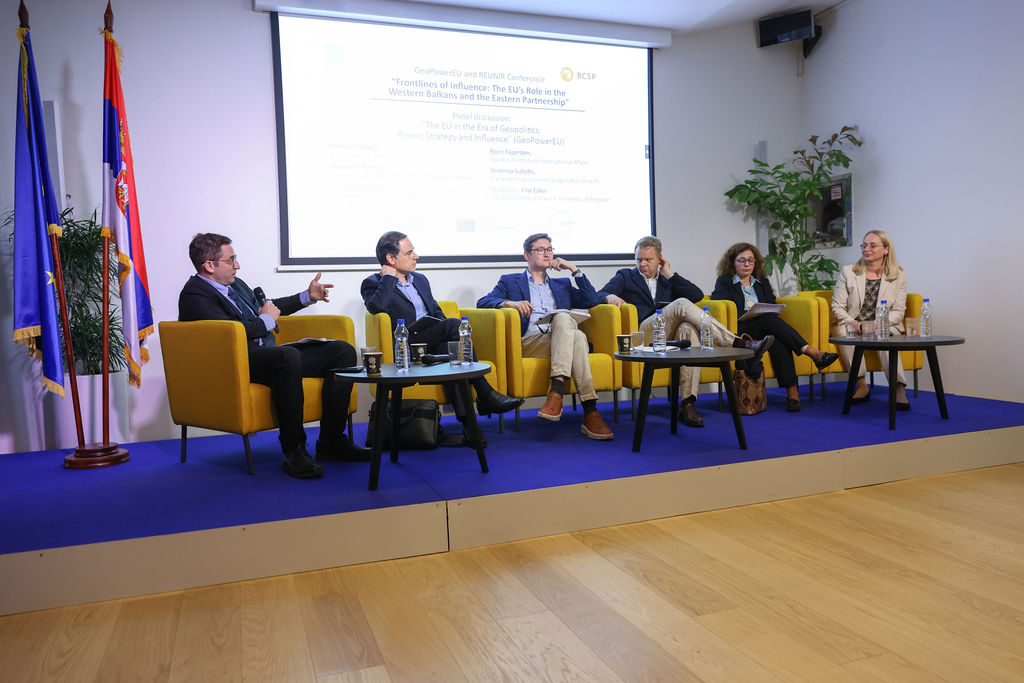
Concluding Remarks & Workshop
Dr. Milica Delević, Director of Governance and Political Affairs at the EBRD, closed the conference by reflecting on the shifting rationale behind enlargement. “Since 2022, we’ve been reminded of the true purpose of this process. Enlargement in the Western Balkans is about reconciliation; in the Eastern Partnership, it’s about shared security.”
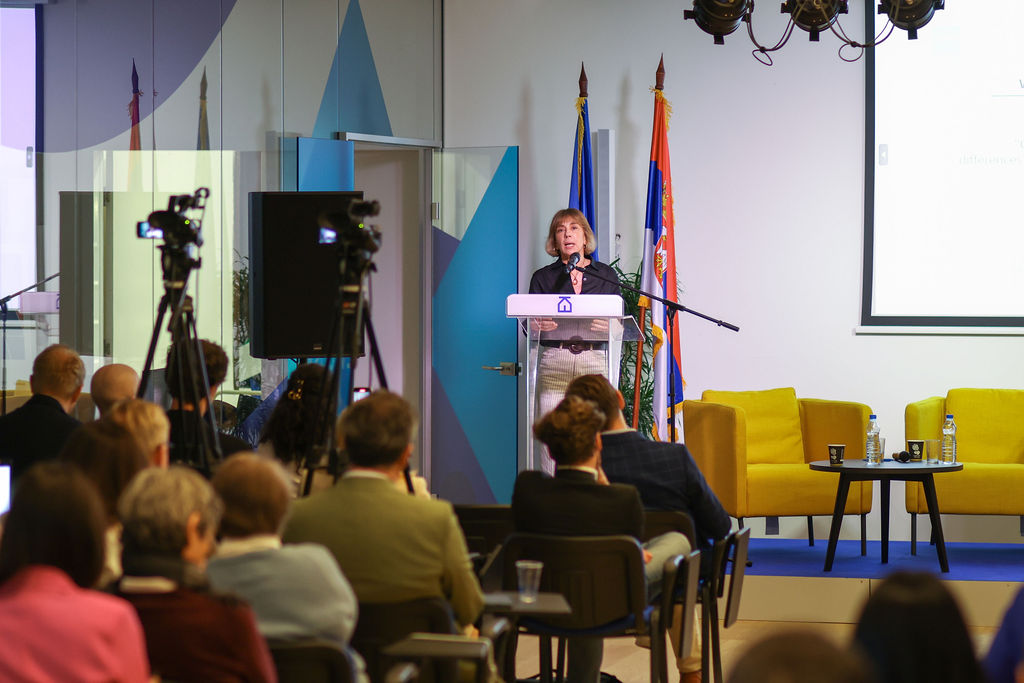
The following day, the BCSP welcomed colleagues and experts for the REUNIR foresight workshop hosted by Global Public Policy Institute (GPPi) from Berlin. The workshop featured interactive sessions on scenario-building and long-term strategic foresight for the Western Balkans. Participants explored possible future trajectories and engaged in lively debate, concluding with a networking lunch.
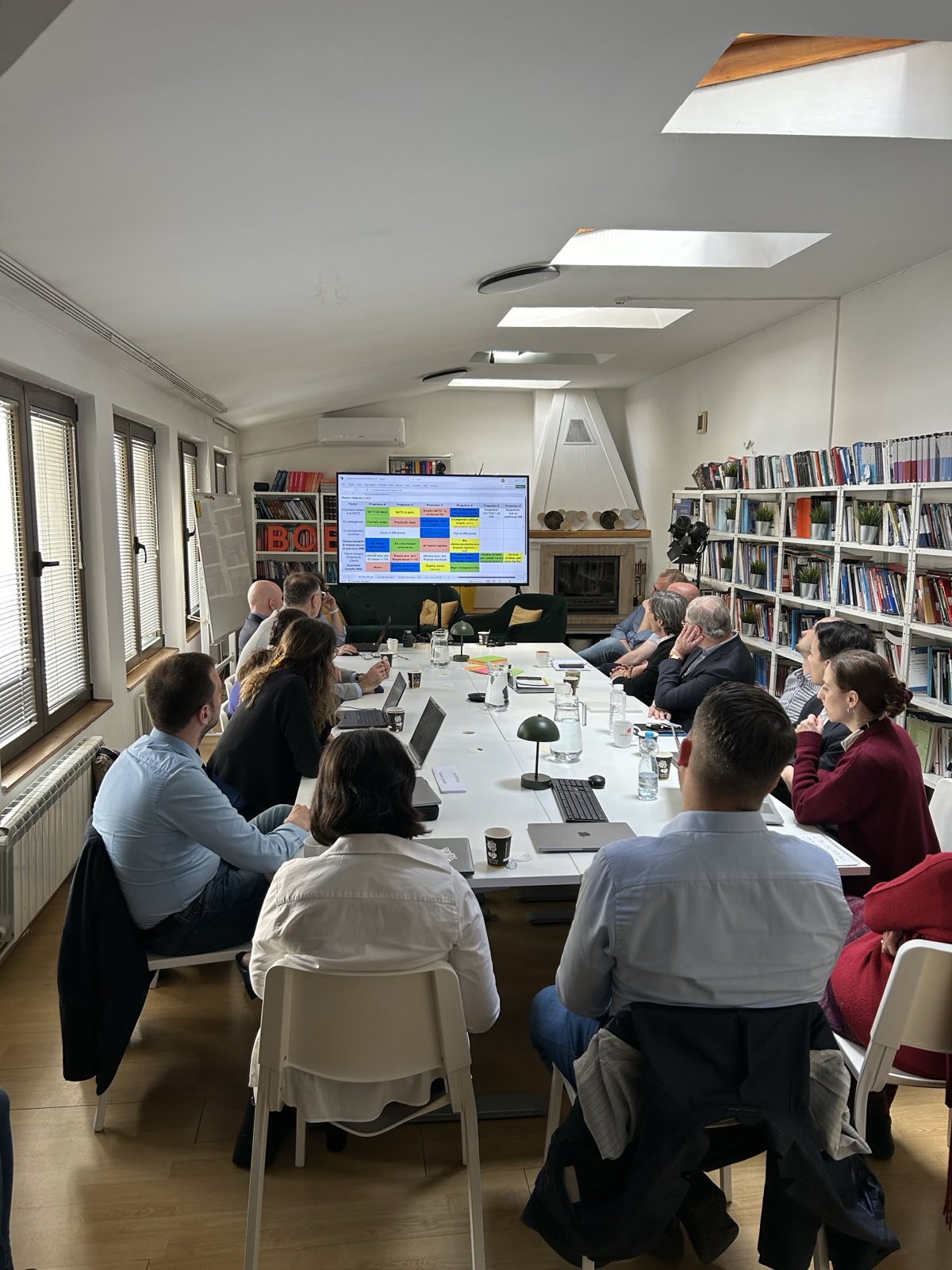
Tags:
RELATED

Date: 18.09.2025.
Author: Belgrade Centre for Security Policy
The Civil Committee for the Protection of Human Rights Defenders and Whistleblowers calls on the competent Public Prosecutor’s Office to immediately act upon information about an alleged plot to assassinate student Pavle Cicvarić, as publicly stated on Informer television by Siniša Vučinić, a member of the Main Board of the Serbian Progressive Party.

Date: 30.06.2025.
Author: Belgrade Centre for Security Policy |
The Belgrade Centre for Security Policy (BCSP) strongly urges the Ministry of the Interior of the Republic of Serbia to immediately cease the excessive and unlawful use of force against peaceful demonstrators. Security forces must treat all citizens equally, act in accordance with the law and strictly follow service regulations during any intervention.

Date: 09.06.2025.
Author: Belgrade Centre for Security Policy
The Belgrade Centre for Security Policy (BCSP) expresses deep concern over serious irregularities, abuses, and selective actions by members of the Ministry of Interior during the local elections held on June 8, 2025, in Zaječar and Kosjerić. We call for an immediate, independent investigation into all reported incidents. These events are part of a broader security context in which the police are increasingly failing to fulfill their primary role—protecting citizens and upholding the rule of law.


